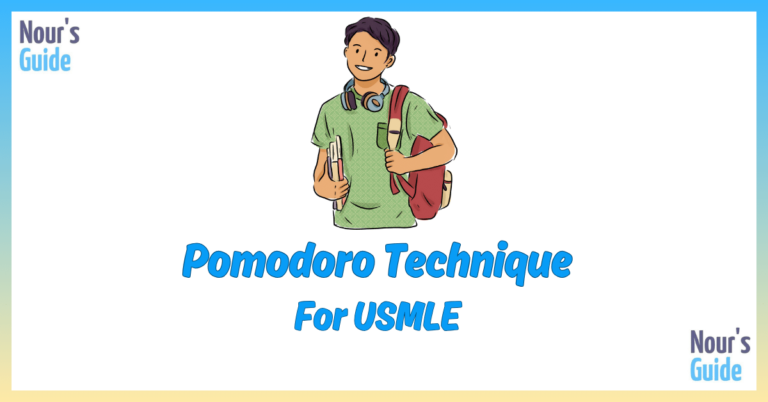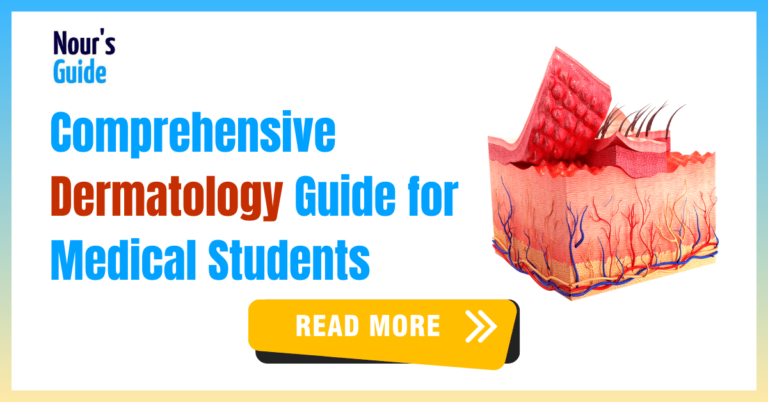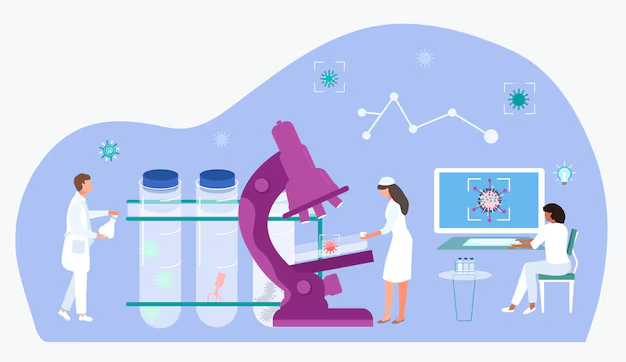Master Guide on Choosing the Best USMLE Step 1 Resources14 min read
In this article, I will provide comprehensive information about the USMLE resources, including the best free and paid options for each subject. Stay tuned for valuable insights.
Table of Contents
The Importance of USMLE Step 1 Exam for Medical Students
The USMLE Step 1 exam is a crucial milestone for medical students on their path to becoming licensed physicians. This comprehensive exam assesses a student’s understanding and application of basic medical sciences, ensuring they have the necessary foundation to progress in their medical career. The Step 1 exam plays a vital role in residency program applications and can significantly impact a student’s future opportunities.
Overview of the USMLE Step 1 Exam
The USMLE Step 1 exam is a computer-based test that evaluates a student’s knowledge and understanding of basic medical sciences, including anatomy, biochemistry, physiology, pharmacology, and pathology. It consists of multiple-choice questions that assess both factual knowledge and the ability to apply concepts to clinical scenarios.
Description of the Exam
The Step 1 exam covers a wide range of topics, testing a student’s understanding of fundamental principles in each discipline. It requires a comprehensive understanding of medical concepts and the ability to integrate information from different areas of study.
Exam Format and Structure
The Step 1 exam consists of seven 60-minute blocks, with a maximum of 40 questions per block. Students have a total of eight hours to complete the exam. Each block may contain a mix of standalone questions and questions organized in sets.
Scoring System and Score Interpretation
The Step 1 exam is scored on a three-digit scale, with a passing score currently set at 194. The scores are based on the number of questions answered correctly, with no penalty for incorrect answers. A higher score indicates a stronger performance in the exam and can enhance a student’s competitiveness for residency program applications.
Essential Study Resources for USMLE Step 1
Preparing for the USMLE Step 1 exam requires a comprehensive approach and the utilization of various study resources. Here are some essential resources that can aid in effective exam preparation:
Textbooks and Review Books
Textbooks and review books are valuable resources for studying and consolidating knowledge in the relevant disciplines. Here are some highly recommended resources:
1. First Aid for the USMLE Step 1:
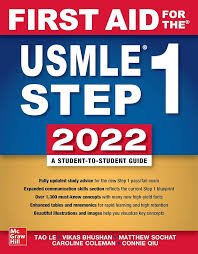
This comprehensive review book is considered the “Bible” for Step 1 preparation. It covers all the essential topics and provides high-yield information for quick revision.
2. Kaplan Medical USMLE Step 1 Prep:

Kaplan’s review books offer in-depth explanations and practice questions to reinforce understanding and test-taking skills.

3. BRS (Board Review Series) Books:
BRS books are concise and focused resources that provide key information in a question-and-answer format, making them ideal for quick review.
3. Becker’s Series:

Becker’s Series was and still is considered a reliable resource for step 1, especially their pharmacology book.
5. Toronto Notes:
The Canadian book series was a great resource, especially in anatomy.
Other Recommended Textbooks:
Depending on individual preferences, additional textbooks such as “Rapid Review Pathology” by Goljan and “High-Yield Gross Anatomy” by Dudek can be beneficial.
Top Question Banks and Practice Tests
Question banks and practice tests are essential for familiarizing oneself with the exam format and testing one’s knowledge and application of concepts. Here are some highly regarded resources:
1. USMLE-Rx Qbank:
This question bank offers a comprehensive collection of USMLE-style questions with detailed explanations, helping students practice and reinforce their understanding.
2. UWorld USMLE Step 1 Qbank:
Although it’s high price, UWorld is widely recognized as one of the best question banks for Step 1 preparation. It features high-quality questions and provides detailed explanations.
3. Amboss Qbank:
Amboss offers a challenging question bank with a focus on integrated clinical cases, helping students develop critical thinking skills.
4. NBME (National Board of Medical Examiners) Practice Tests:
NBME practice tests are official exams that simulate the actual Step 1 exam, providing students with an opportunity to assess their readiness and identify areas for improvement.
5. Osmosis MCQ:
With Osmosis Premium, you can access a wide range of multiple-choice questions in all subjects. I highly recommend it.
6. Telegram Groups & Channels:
Online Video Resources:
Online resources and study tools can complement traditional textbooks and question banks, offering interactive and visual learning experiences. Here are some highly recommended resources:
1. Osmosis:
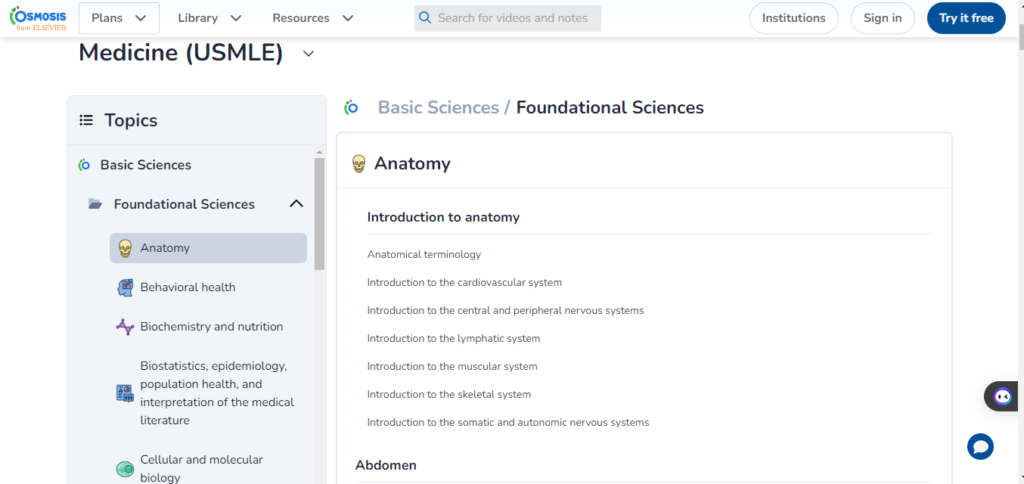
Osmosis is an all-in-one platform that provides comprehensive resources for medical and health professional students, educators, and lifelong learners. It empowers them to think clinically and strive to become the best caregivers possible. Osmosis is known for offering the most reliable and thorough explanations on a wide range of topics relevant to medical school.
You can either subscribe to their Premium.
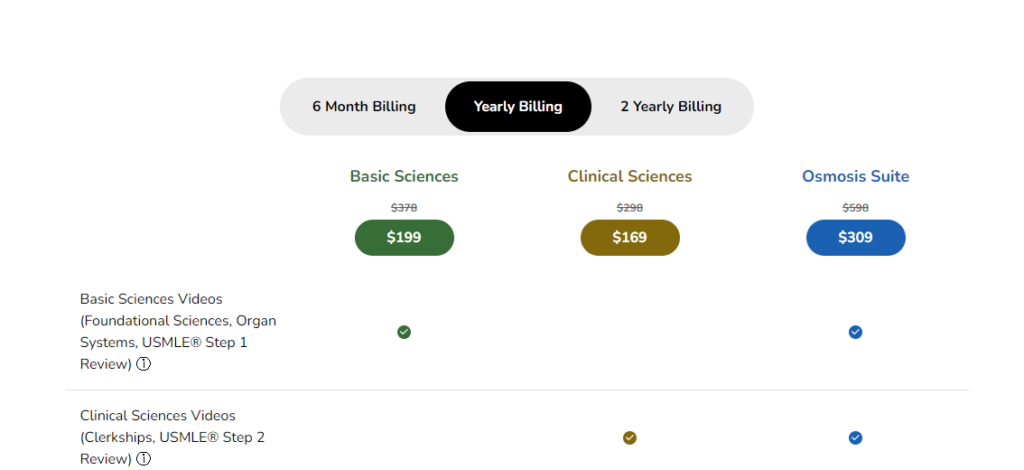
What is covered in the Osmosis Prime Membership?
- Over 2,000 videos covering essential Physiology, Pathology, and Pharmacology topics
- More than 15,000 pre-clinical flashcards derived from the Brosencephalon Anki Deck
- A collection of 7,300 practice questions for Step 1 and Step 2, ranging from didactic to clinical level
- Access to all created documents, flashcards, and shared materials within a workspace
Or You can use the free content they provide on YouTube and the telegram channels. which
2. Boards and Beyond:
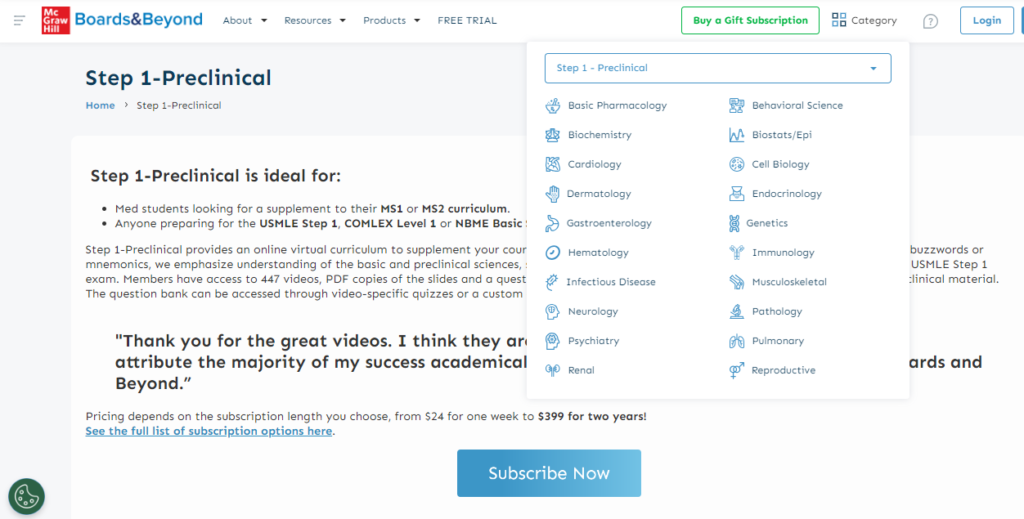
Boards and Beyond is a comprehensive video-based resource that covers key topics in a concise and easy-to-understand manner.
They provide organized content with more than enough explanation but the visuals might not be as good as Osmosis.
They Have a Decent Price $399 for 2 Years.
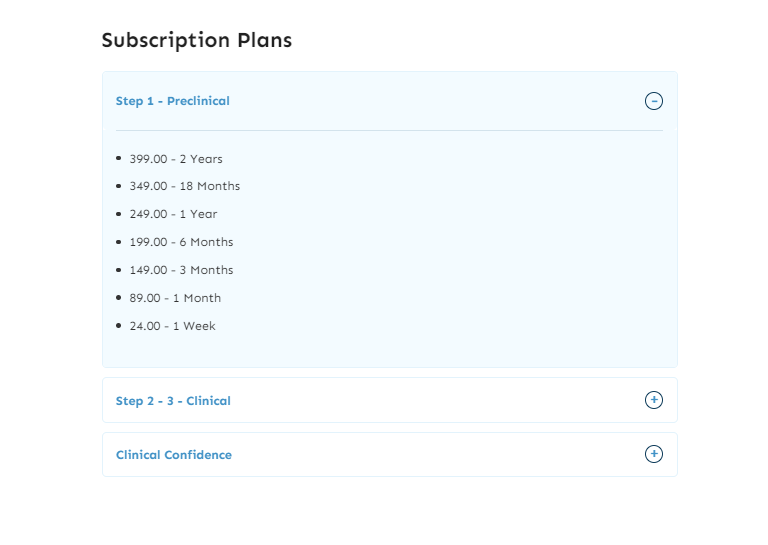
3. Sketchy Medical:
Sketchy Medical utilizes visual mnemonics to aid students in memorizing and recalling essential concepts in microbiology, pharmacology, and pathology. They excel in microbiology, but their quality is not as high in other subjects. However, they are the most user-friendly resource for studying.
You can access their content on their website They offer a 12 month for $399
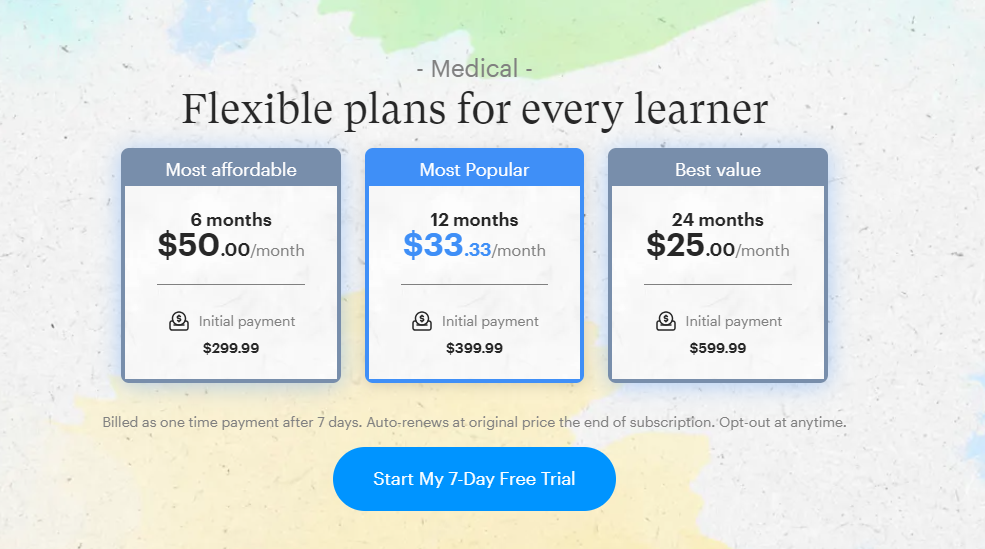
4. Pathoma:
Pathoma is a comprehensive video series that focuses on pathology, providing a systematic approach to understanding disease processes.
There is a Free Plan and $84 Pro Plan and you can access it from Telegram.
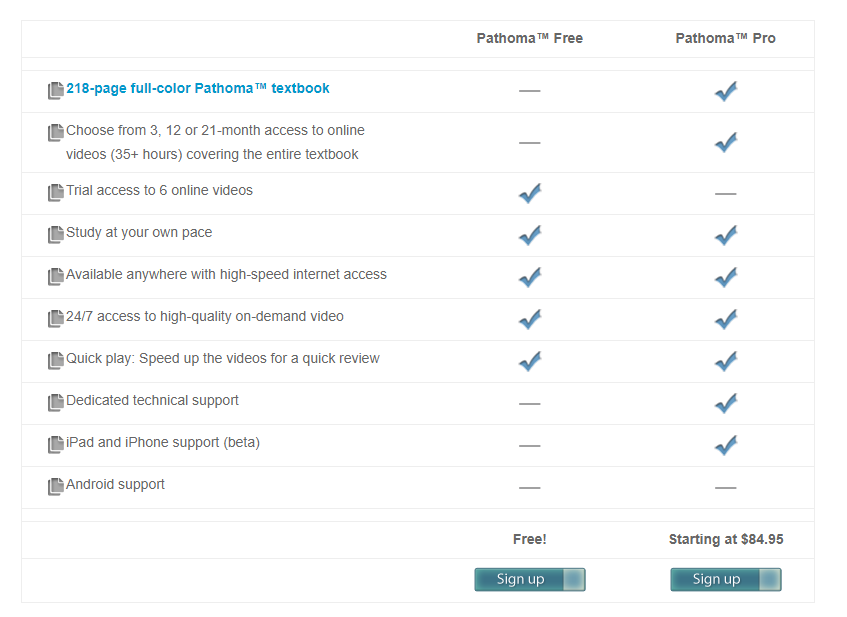
USMLE World:
USMLE World (now known as UWorld) is an online learning platform that offers a vast question bank and provides detailed explanations to enhance understanding.
Top YouTube Channels For Free Medical Learning:
1. Ninja Nerd:
The mission of Ninja Nerd is to deliver high-quality science and medicine lectures on YouTube for free. Our goal is to provide a platform that complements a well-rounded learning experience and ensures that viewers walk away with a comprehensive understanding of the subject matter.
2. Dr Matt & Dr Mike
Associate Professors Mike Todorovic, PhD, and Dr. Matt Barton, PhD, are renowned university lecturers in the field of medical science. Their educational videos and podcasts in the medical field are downloaded by millions of people each month, and their YouTube videos are utilized in courses by over 50 universities.
3. Osmosis
The YouTube channel provides informative consumer health videos aimed at educating the public about crucial medical concepts. Meanwhile, the Osmosis.org learning platform offers comprehensive basic and clinical sciences videos designed for health professionals and students. It also includes a wide range of resources such as decision-making trees, board-style practice questions, flashcards, and advanced features like quiz builders, playlists, collaborative tools, and a mobile app.
4. EZmed
Access a variety of resources such as study guides, PDFs, and written lectures that complement each video.
Subscribers receive timely notifications, saving valuable study time and gaining a clear understanding of complex topics. Additionally, they benefit from numerous memory tricks and mnemonics. Don’t miss out on future videos, study guides, and memory techniques that can help you succeed in the field of medicine.
5. Rhesus Medicine:
A collection of 233 succinct medical videos designed to assist medical students and other health profession students in efficiently learning and retaining key exam topics.
6. Dr. G Bhanu Animation:
Not everyone has the same visual imagination capacity. Individual visualization abilities are influenced by the amount of material read from textbooks. Information read in sentences is forgotten more quickly compared to topics learned from animated videos with high-definition images and colorful graphics. In the field of medical education, animated videos are likely the fastest, simplest, and most detailed way to educate medical students.
6. Alila Medical:
These concise and easily understandable mini-lectures are ideal for students, teachers, and patient education. You are welcome to share a link to our YouTube videos or embed them using the YouTube embed function on your websites or in lecture presentations. In this scenario, your viewers will watch the videos on our YouTube channel, with ads.
Anki Flashcard Resources:
Anki is a popular flashcard app that utilizes spaced repetition, helping students memorize and retain information effectively. We’ve made a dedicated blog on the best flashcards for medical students.
Other Helpful Websites and Apps:
Additional resources such as Medscape, Khan Academy, and Picmonic can also provide valuable study materials and interactive learning experiences.
Strategies for Effective USMLE Step 1 Preparation
Preparing for the USMLE Step 1 exam requires careful planning and effective study strategies. Here are some strategies that can enhance your preparation:
Developing a Study Plan and Timeline
Creating a study plan and timeline is essential to ensure comprehensive coverage of the exam topics. Break down the content into manageable sections and allocate sufficient time for each topic based on its weight and your familiarity with the material.
Time Management and Study Scheduling
Effective time management is crucial during Step 1 preparation. Set realistic study goals and allocate dedicated study blocks throughout the day. Prioritize difficult topics or areas of weakness, but also ensure a balanced approach to cover all subjects.
Effective Note-Taking and Review Techniques
Develop a system for taking concise and organized notes while studying. Highlight key concepts, make use of visual aids, and create summaries or mnemonics to facilitate recall. Regularly review and revise your notes to reinforce understanding.
Practicing with Question Banks and Practice Tests
Regularly practice with question banks and simulate exam-like conditions. Analyze your performance, identify weak areas, and focus on improving your understanding and test-taking skills. Review the explanations for both correct and incorrect answers to enhance your knowledge.
By utilizing these strategies and incorporating a combination of study resources, you can enhance your preparation for the USMLE Step 1 exam and increase your chances of achieving a successful outcome.
Tips for Maximizing USMLE Step 1 Score:
Self-assessment tools are the key, push on them as much as possible and focus on the high-yield topics.
Techniques for rapid and efficient information retrieval
When preparing for the high-stakes USMLE Step 1 exam, it’s crucial to develop strategies for quickly accessing and absorbing large volumes of complex medical information.
One key technique is to create concise, well-organized study materials that allow you to efficiently review core concepts. This could involve making flashcards, mind maps, or condensed outlines that highlight the most essential facts and principles.
Additionally, practice retrieving information under timed conditions to mimic the testing environment. Try quizzing yourself or having a study partner quiz you to get comfortable rapidly recalling and applying your knowledge.
Finally, be mindful of your study methods – spaced repetition and active recall have been shown to be more effective for long-term retention than passive reading.
By honing these information retrieval skills, you’ll be well on your way to a top score on the USMLE Step 1 exam.
Effective test-taking strategies
Preparing for a big test can feel stressful, but don’t worry – there are lots of proven strategies you can use to ace it.
First, make sure you thoroughly review all the material covered in class. Go over your notes, textbook, and any practice problems to identify areas you’re still unsure about, and focus your studying there.
When it comes to the test itself, pace yourself and read through the questions carefully before answering. Don’t be afraid to skip harder questions and come back to them later if you’re feeling stuck.
And remember, the night before the test, try to get a good night’s sleep – your brain will thank you!
With a solid study plan and the right test-taking techniques, you’ll be walking out of that exam room feeling confident and proud of all your hard work. You’ve got this!
Encouragement for medical students to develop a comprehensive study plan
You Can See our blog on creating a great step 1 study plan.
FAQ Section:
What is the best resource for USMLE Step 1 preparation?
There is no single “best” resource, as different resources work better for different students. However, some of the most popular and highly recommended resources include First Aid for the USMLE Step 1, UWorld USMLE Question Bank, and Boards and Beyond video lectures.
How much time should I allocate for USMLE Step 1 preparation?
The recommended study period for USMLE Step 1 preparation is typically 4-6 months, depending on your baseline knowledge, study habits, and overall preparation strategy. It’s important to create a realistic study plan and timeline that works for your individual needs.
What is the best way to use question banks like UWorld and AMBOSS?
Utilize question banks to assess your knowledge, identify weaknesses, and practice applying your understanding of the material. Aim to complete full-length practice tests and review each question carefully, focusing on the rationale behind the correct and incorrect answers.
Should I use flashcards or Anki for memorization?
Flashcards and the Anki spaced repetition app can be beneficial for memorizing high-yield information, such as definitions, formulas, and facts. However, it’s important to balance flashcard use with active learning, practice questions, and understanding the underlying concepts.
How do I effectively manage my time and study schedule?
Develop a structured study plan that includes a mix of content review, practice questions, and self-assessment. Allocate dedicated time for each subject and topic, and be flexible to adjust your schedule as needed. Prioritize self-care and take regular breaks to avoid burnout.
What should I do if I’m struggling with a particular subject or topic?
Identify your weaknesses early on and allocate more time to those areas. Utilize additional resources, such as supplementary textbooks, video lectures, or one-on-one tutoring, to improve your understanding. Don’t be afraid to seek help from professors, mentors, or study groups.
How important is the USMLE Step 1 score for residency applications?
The USMLE Step 1 score is a significant factor in the residency application process, as it provides a standardized measure of your medical knowledge. While the importance of the score may vary across different specialties and programs, it’s essential to aim for a competitive score to maximize your chances of matching into your desired residency.
Are there any additional tips or strategies for success on the USMLE Step 1 exam?
Develop effective test-taking strategies, such as managing your time, identifying the most important information in each question, and using the process of elimination. Additionally, maintain a healthy lifestyle, get adequate sleep, and practice stress management techniques to perform your best on test day.



